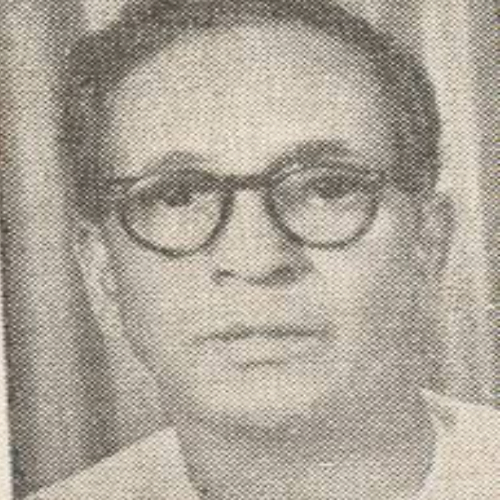Early Life
Arun Chandra Guha was born on 14 May 1892 in Barisal, Bengal. He graduated from Braja Mohan College.
An avid writer, he ran a publishing house ‘Saraswati Library’- through which he published his radical writings. He believed his role was to get as many books as possible published. Guha also published Swadhinta (Freedom), a weekly journal that was banned in 1930 – four of its editors were convicted for sedition.
Role in India’s Independence Movement
Guha joined the Jugantar Party in 1906 – a clandestine revolutionary party established in Bengal by leaders such as Aurobindo Ghosh, Barin Ghosh, Bhupendranath Datta and Raja Subodh Mallik that strived for Indian independence. He was arrested and detained multiple times for his participation in the political activities of this party.
During his time in prison, he decided to join the non-cooperation movement in 1920. He stated, ‘I felt that a revolution could not be effective by a handful of men organising it secretly. They could act as spearheads but the movement had to be mass-based’. He soon became a part of the West Bengal Pradesh Congress Committee where he was elected as the General Secretary. Subsequently, Guha joined the All-India Congress Committee in 1923, where he continued as a member for 26 years.
He was a member of various social and political organisations including the Shankar Math Trust, Prajnanananda Pathagriha Trust and Maniktala Adarsha Vidyamandir. He also founded the Prajnanananda Jana Seva Sangha.
Contribution to Constitution Making
Arun Chandra Guha was elected to the Constituent Assembly from West Bengal on a Congress party ticket.
He made important interventions in the debate on re-drafting the Constitution. He gave an extensive closing speech summing up his impressions on the Constitution.
Later Contributions
Arun Chandra Guha was a part of the Provincial Parliament from 1950 to 1952. He was also elected as a member of the first, second and third Lok Sabhas. He served as the Minister of State for Finance during his first term in the Lok Sabha.
He was the Chairman of the Estimates Committee (1965-66) set-up under the aegis of the Ministry of Education. As a part of the Committee, he submitted the 102 Report to the Lok Sabha recommending changes to the functioning of the University Grants Commission and universities in India.
- Guha opposed the need to include restrictions on rights and freedoms. He strongly believed that the inclusion of such restrictions would limit future governments from enacting laws related to fundamental rights.
- Upholding a Gandhian outlook, Guha wanted to give more power to the village panchayats. He recognised that a powerful Centre is required. He suggested that the same could be achieved if the village panchayat structure is made strong which would inevitably strengthen the Centre through the pyramid structure.
- Assessing the Constitution as a whole, he felt that it did not reflect the revolutionary character of the moment, and therefore could only serve as a stopgap arrangement.

